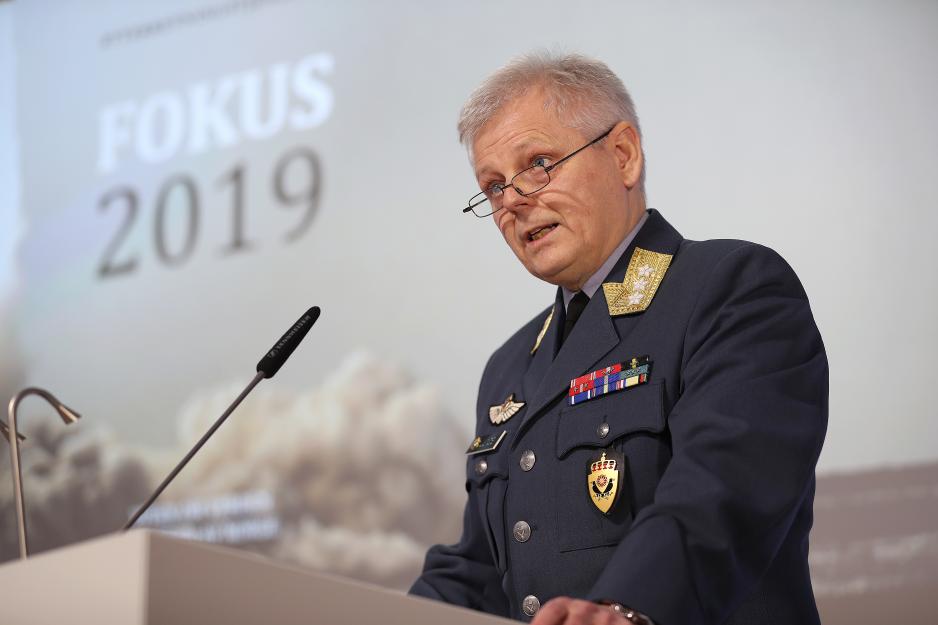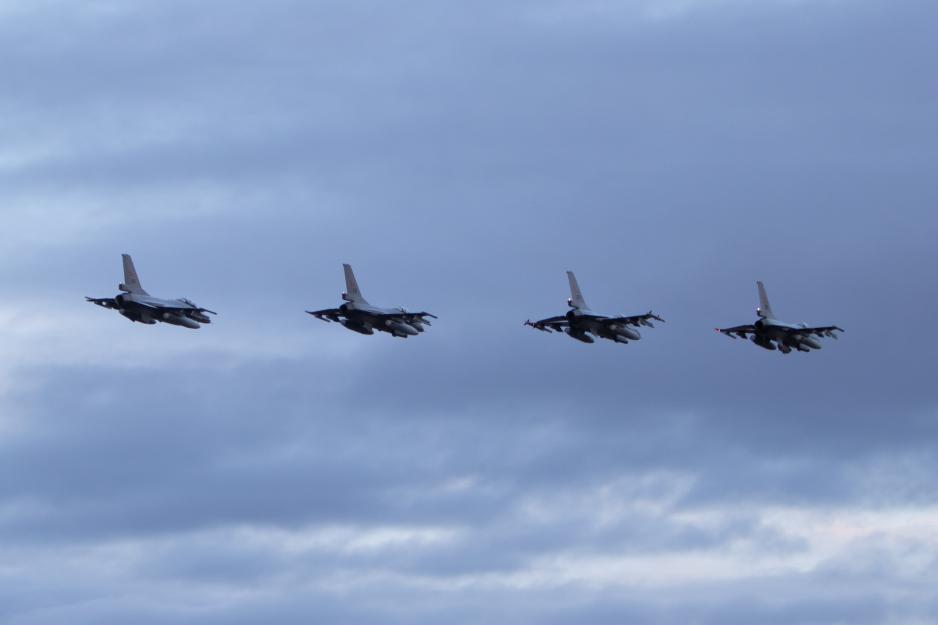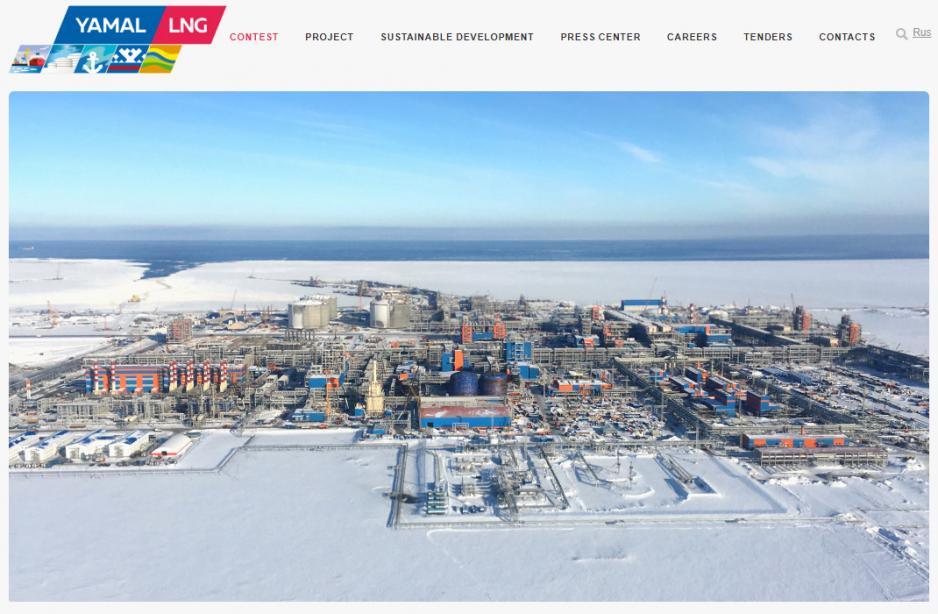Norwegian Intelligence Services Say Russian Build-Up in the North Continues

The Head of [Norwegian] Military intelligence, Lieutenant General Morten Haga Lunde, presented the Fokus 2019 threat report yesterday. The report says Russian build-up in the north, both militarily and civilian, will continue. (Photo: Torbjørn Kjosvold, Norwegian Armed Forces)
The [Norwegian] military intelligence report ‘Fokus 2019’ states that Russia has significantly increased its presence in the Arctic, and that this is an on-going trend.
The intelligence services submit an annual open report to the Minister of Defense, and this year’s edition of the focus report worries Defense Minister Frank Bakke-Jensen.
He believes the world is heading for a far more instable security policy situation than what has been the case in a very long time, and there is much in the intelligence report to underpin his worries.
Russia sees two threats
In an extensive chapter about the Arctic, the intelligence services state that Russia perceives there to be two major threats to her security:
Russian presence in the Arctic has been significantly strengthened over the past years, and this trend is expected to go on. Civilian presence has increased; however, the clearest development is that of the Russian military force, which is a high priority for the Kremlin.
This development, and the military forces’ more active behavior in the High North, can not be seen as separated from Russian thinking on security. Russia sees two overall long-term military threats: the battle for natural resources and threats to strategic stability.
Norway less Russia-friendly
The ‘Fokus 2019’ report points out that Norway is considered less friendly towards Russia, and this contributes to Russian rhetoric against Norway growing more confrontational.
Russia perceives Norway as a driving force for increased allied activity in the High North. This results in increased influence activity. The Russian military force has begun signaling Russian displeasure clearer through its increased activity in the region, the report states.
Furthermore, the intelligence services point out that “Russia continues its attempts at undermining political processes and increasing polarization in Europe and NATO”, and that his behavior from the Russian will not be deterred by its being revealed. However, one observes that this behavior is modified and further developed.
The military power’s activity in the Arctic is increasingly moving towards Russia actively expressing its displeasure.
Jamming threatens civilian air traffic
Jamming is a particular cause for concern. Several cases of GPS jamming affecting Norwegian and allied air traffic were registered as late as during the allied exercise Trident Juncture in the autumn of 2018.
This does not only represent a new challenge to Norwegian and allied exercise activity, it [jamming] also constitutes a threat against civilian air traffic in times of peace. The trend we have outlined will continued, and Russian ability to cross-sector power project in times of peace, crisis and war will increase through her weapons program for the period up to 2027.

Jamming radio signals affected both Norwegian and allied air traffic during the ‘Trident Juncture’ in 2018. It also represents a threat to civilian aviation, the intelligence services write in their report. (Photo: Hanne Hernes/Norwegian Armed Forces)
China also operates in the High North
Russia is not the only challenger of Norwegian security in the High North. China is also more targeted, coordinated and efficient in its intelligence operations, the report says.
The report further argues that Norway’s proximity to the Arctic and the High North makes Norway a popular intelligence target.
Russian national control
The Arctic areas hold crucial economic and political significance for Russian, and Russian activity in the High North should be considered against this backdrop.
The Russian defense strategy is conditioned on the Arctic being an area of emphasis in a conflict about natural resources.
Today, the Arctic accounts for some 15 percent of the Russian GDP and approximately 20 percent of all Russian exports. Russian authorities consider the energy resources in the Arctic a pillar of the Russian economy. National control is thus a precondition.
Rapid military movements
Russia has modernized and strengthened her military capacities in order to secure early warning capacities and improve control of its immediate ocean areas, and the country has demonstrated that it can gather military force anywhere on Russian territory within a short period of time.
The Northern Fleet’s military capacity can thus not be viewed in isolation, as it may receive reinforcements from other military districts within a very short period of time.
Distribution may cause problems
The military intelligence security report analyses all the various initiatives in the northern parts of the Russian military, and predicts that some practical problems will arise for Russia. Unlike before, the money spent on security measures in Russia is to be distributed more or less equally amongst the defense branches, it says.
This involves abandoning a one-sided emphasis on a large, direct military conflict and focusing more on a more asymmetrical, indirect and complex use of tools. Russian military activity in the High North will increasingly have to be seen in the light of Russian military activity elsewhere, both within and outside of Russia.
In much the same way, developments and activities in other areas may have consequences for the situation in areas close to Norway. Russia is taking measures to better control its Arctic policy […]
[…] A series of practical challenges may, however, mean that the coordination challenges will continue also after 2019. Development in the region is hampered by western sanctions and Russia’s financial situation, and the Kremlin is increasingly turning towards China for economic support.
[…]
For instance, there are three deputy prime ministers who, each in their way, hold leadership responsibility for development of the Russian Arctic. In addition, there are several state project offices and commissions with partially overlapping purposes. The coordination challenges characterizing the Russian Arctic are thus likely to continue well past 2019.

Yamal LNG is highlighted as an Arctic project that Russian has managed to conduct thanks to foreign investments. China is heavily involved with money. (Screen shot from the Yamal LNG home page.)
Some Russian skepticism towards China
The focus report repeatedly underlines China’s significance for continued Russian development. The Yamal LNG project is, amongst others, emphasized as one example of a project conducted with foreign investments, with China being a major economic contributor.
The intelligence services believe China’s investments to be highly politically motivated – to secure participation in more Arctic projects. Russia’s need for national control over its northern natural resources, however, makes Russian authorities ambiguous about increased involvement from other states in the Arctic, according to the recent report from the Norwegian intelligence services.
This article orginally appeared in Norwegian and has been translated by HNN's Elisabeth Bergquist.
